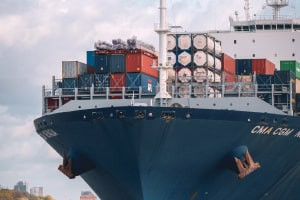In recent times, many countries worldwide have transformed their agricultural-based economies to large scale manufacturing economies by utilising mass manual labour and artisans at their disposal to produce goods. However, production lines filled with manual labour and craftsmen could not cater to the much-demanded goods of consumers in such economies. This gave rise to labour union struggles between the management of manufacturing companies and workers because working conditions were becoming worse due to excess supply of cheap labour for the maximisation of profit. This trend gave rise to the advent of mechanised mass production and assembly lines, beating overall production costs and ensuring units’ excess production. Despite the excess quantity of products manufactured using rail and truck haulage to get to different neighbouring countries efficiently, businesses still required more ways of harnessing industrialised production goods. Company’s found the answer in what we now know as ship cargo transportation across continents. This course will expose you to the business and processes of cargo carriage involved in moving different product cargoes using ships.
This ‘Ship Cargo Handling and Ventilation Systems’ course offers an understanding of using ships for stowage and moving cargoes across ports effectively with the help of all relevant stakeholders. We explain the laws and regulations abided by the stakeholders involved in ship cargo handling alongside general principles of safe cargo carriage. We will also analyse the relevant processes involved in carriage carrying and successful delivery of cargo. These processes consider aspects such as availability of the vessel at the load port, type, capacity and the load density of the ship designated to carry the cargo. Explore arrival and departure drafts of a vessel as per port requirement and the ship’s capability to handle ballast as per the port requirement. These are all considered important processes and essential for your learning. You will be able to describe the general cargo hold inspection procedure and loading preparations employed by ship cargoes, including the use of dunnage and spar ceiling. Other relevant discussions include the inspection and preparation of cargo ship holds.
This course aims to equip you with a broad outlook of ship cargo carriage consisting of securing cargoes using blocking, lashing and shoring. We highlight the elements of securing cargoes and include the codes and manuals used to safely secure different types of shipments. Furthermore, we explore the operation of ship cargo ventilation systems to control ‘cargo sweat’ and identify different cargo types that require special ventilation. The course considers the desire to operate internationally for big manufacturing companies and multinational organisations. This helps harness massive cross-border trade of goods using ships for cargo and employing ventilation systems onboard ship holds to prevent cargo damage. This makes ‘Ship Cargo Handling and Ventilation Systems’ from Alison the perfect course for students, researchers, marine engineers, shippers, ship cargo stakeholders and anyone interested in learning about the safe stowage of cargo materials on ships. Register today to improve your understanding of ship cargo handling and securing, alongside ventilation systems used to preserve cargo materials.
What You Will Learn In This Free Course
View All Learning Outcomes View Less All Alison courses are free to enrol, study, and complete. To successfully complete this Certificate course and become an Alison Graduate, you need to achieve 80% or higher in each course assessment.
Once you have completed this Certificate course, you have the option to acquire an official Certificate, which is a great way to share your achievement with the world.
Your Alison certificate is:
- Ideal for sharing with potential employers.
- Great for your CV, professional social media profiles, and job applications.
- An indication of your commitment to continuously learn, upskill, and achieve high results.
- An incentive for you to continue empowering yourself through lifelong learning.
Alison offers 2 types of Certificate for completed Certificate courses:
- Digital Certificate: a downloadable Certificate in PDF format immediately available to you when you complete your purchase.
- Physical Certificate: a physical version of your officially branded and security-marked Certificate
All Certificate are available to purchase through the Alison Shop. For more information on purchasing Alison Certificate, please visit our FAQs. If you decide not to purchase your Alison Certificate, you can still demonstrate your achievement by sharing your Learner Record or Learner Achievement Verification, both of which are accessible from your Account Settings.












 Avg. Hours
Avg. Hours  Contains Video
Contains Video  CPD Accredited
CPD Accredited 
 Total XP:
Total XP: 
 Knowledge & Skills You Will Learn
Knowledge & Skills You Will Learn 







